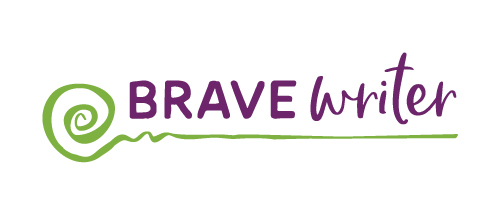Welcome to "Tea with Julie," a weekly missive by me, Julie Bogart. My wish is to give you food for thought over a cup of tea to enhance your life as an educator, parent, and awesome adult. Glad you're here. Pinkies up!
P.S. Was this email forwarded to you? Add yourself to the list and get your own!
Cincinnati, February 5, 2022
Hi Friend,
Neil Postman (famous educator) says, “Children enter school as question marks and come out as periods.”
Homeschool gives you the opportunity to resist that trend. While the impartation of our own worldview, beliefs, and values is often part of what motivates the choice to home educate, we must resist the temptation to “download” those ideas onto the heads of our children, blunting their natural curiosity and creativity.
The best educational models rely on the Socratic method of inquiry—asking good questions. Writing depends on the ability to ask yourself good questions. Your leadership at home can facilitate that growth and development.
Here's How
1) Ask thoughtful questions (even if you think you know the answer):
- “Why do you think we practice X as a tradition?”
- “What might have motivated Paul Revere to ride through New England warning, ‘The British are coming!’?”
2) Ask imagination questions:
- “What would it feel like to wake up and see a green sky and blue grass?”
- “If you could fly, what might be a few of the dangers you’d encounter?”
3) Ask personal experience questions:
- “What did it feel like to ride your bike without the training wheels?
- “Can you describe to me how the toothpaste tasted so I can imagine it?”
4) Ask factual questions:
- “How fast can a cheetah go at maximum speed?”
- “What is the difference in plumage between a black-capped chickadee and a Carolina chickadee?”
Be a Model
Model how to ask yourself questions by talking out loud in front of your children:
- “Let’s see. If I’m going to host 15 people at Thanksgiving and each person will eat .25 lbs of turkey, how big does my turkey need to be? I wonder if the weight includes bone. I better find out.”
- “I wonder why some people are against ______ when I am for it. Could it be that they have a different experience than me? I wonder what that might be. I need to find out so I can understand how they see the world differently than I see it.”
Teach your children to ask themselves questions:
- “Do you know the reasons for your main character’s choices? As you think about the main character, ask yourself questions about his motivations, his childhood and how that shapes his understanding of the world, and what his goals are. These often tell you why he makes the choices he makes.”
- “I hear you: that idea makes good sense to you. Maybe you are thinking that way because of an experience in your life. Can you recall a time in your life where you faced a similar dilemma? Think about what might have happened if that situation had resolved itself in a different way. How does that impact your idea?”
- “If you think some historical event makes the people in it seem out of control, it might be because we have the benefit of hindsight. See if you can ask yourself what it would be like to have lived in that era without knowing how the event or condition (war, battle, court case, revolution, institution of slavery, the Holocaust) ended. Does that change how you understand it?”
Your job as a home educator is to be a person who trains children to be quality, effective question marks.
Academics (those who make their living at research and teaching) are incurable question marks! To enter that world, we all need to be better at asking questions than providing conclusive answers.
Who better than you to lead your children into that habit of practice?
Warmly,

P.S. Catch up on all the “Tea with Julie” emails here!
Julie Bogart
© 2022 Brave Writer LLC™
help@bravewriter.com

.